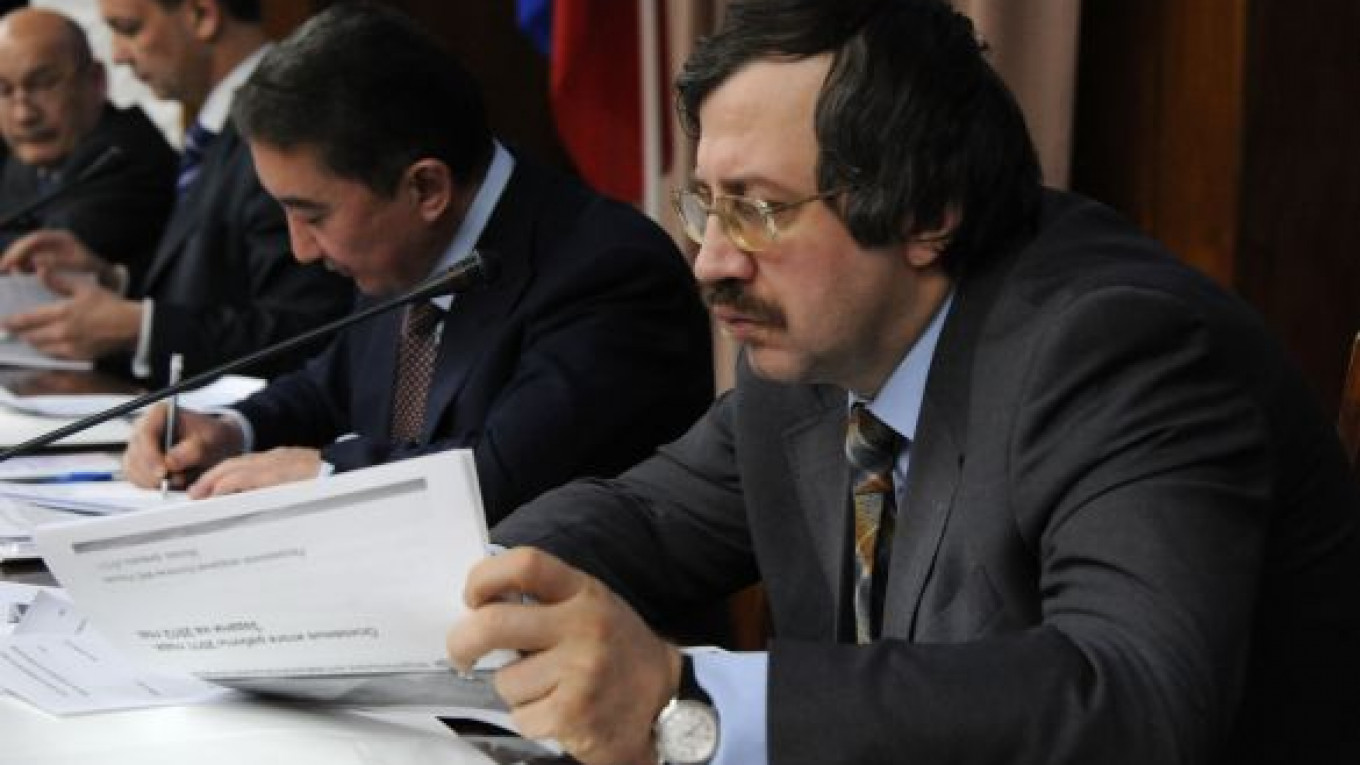Officials are responsible for about half the registered violations of anti-monopoly laws, deputy head of the Federal Anti-Monopoly Service Andrei Tsarikovsky said in an interview with Rossiiskaya Gazeta.
Tsarikovsky offered a pessimistic view as he highlighted the frequency with which public servants abuse public procurements, provide unreasonable preferences for companies owned by acquaintances, and create obstacles for unfriendly companies, saying a new generation of economists and officials was needed to challenge norms.
Sidestepping a question about bribe taking, Tsarikovsky instead fingered ignorance of anti-monopoly laws as a major driver of violations, especially among regional and local officials.
He also admitted that a blacklist of officials and businesses, designed to target repeat violators with stiffer penalties, so far had seen limited use. Tsarikovsky said that in business, company-wide fines were more effective than those against individuals, but officials responded best to the opposite tactic. However, he said because officials often don't know they are violating the law, increasing punishments would have limited effectiveness in preventing future violations.
On competition, Tsarikovsky said there were few problems in industries where new forces had emerged or in newly-developed industries starting from zero, like information technology and textile industries.
Most problems come from large-scale Soviet era industries, especially in natural resource extraction. High barriers to market entry, like the large amount of capital required, keeps many competitors from entering.
Tsarikovsky said entry into international economic organizations like the WTO and the customs union with Belarus and Kazakhstan should help, though he admitted businesses do not share his optimism.
A Message from The Moscow Times:
Dear readers,
We are facing unprecedented challenges. Russia's Prosecutor General's Office has designated The Moscow Times as an "undesirable" organization, criminalizing our work and putting our staff at risk of prosecution. This follows our earlier unjust labeling as a "foreign agent."
These actions are direct attempts to silence independent journalism in Russia. The authorities claim our work "discredits the decisions of the Russian leadership." We see things differently: we strive to provide accurate, unbiased reporting on Russia.
We, the journalists of The Moscow Times, refuse to be silenced. But to continue our work, we need your help.
Your support, no matter how small, makes a world of difference. If you can, please support us monthly starting from just $2. It's quick to set up, and every contribution makes a significant impact.
By supporting The Moscow Times, you're defending open, independent journalism in the face of repression. Thank you for standing with us.
Remind me later.






